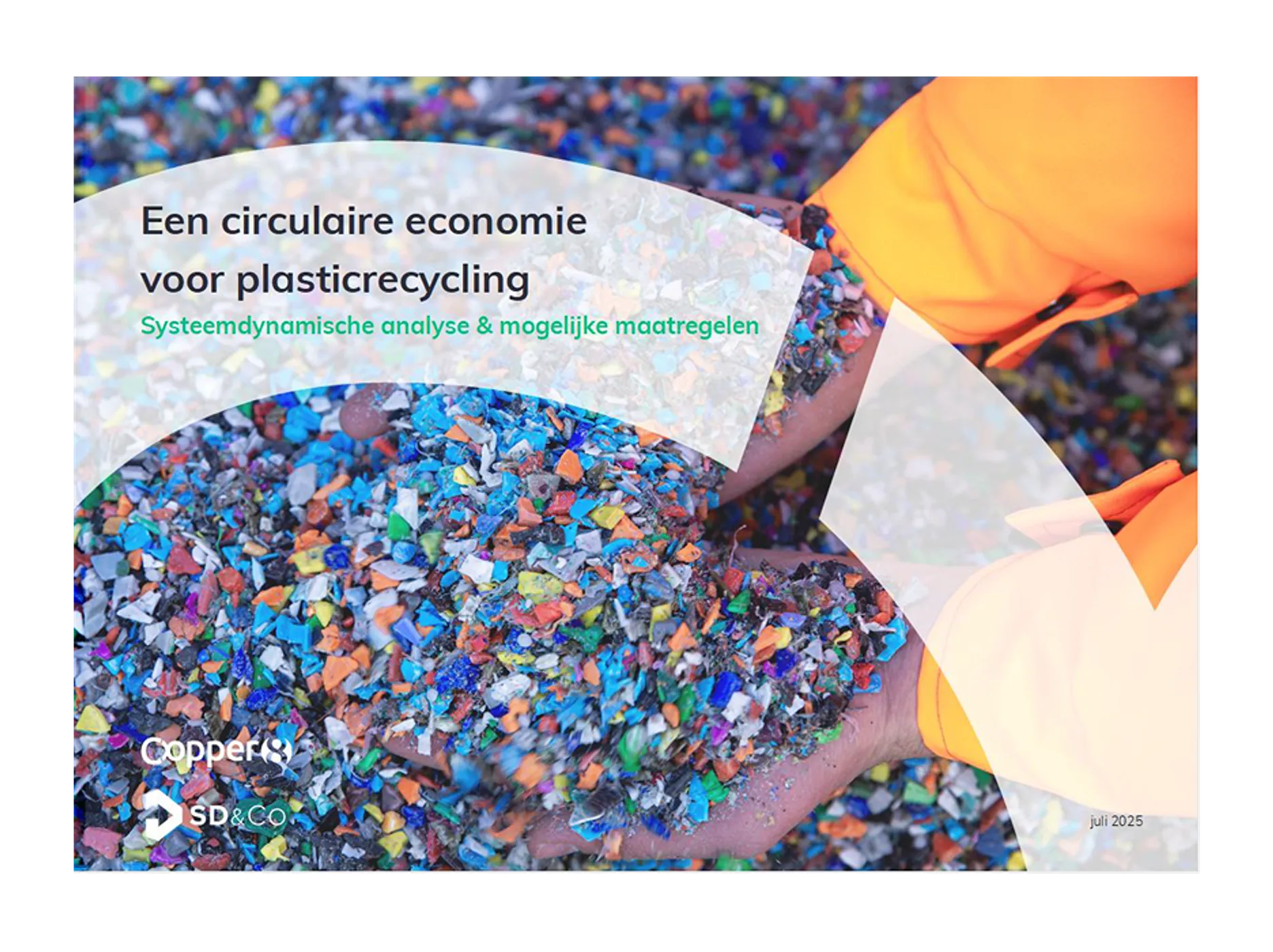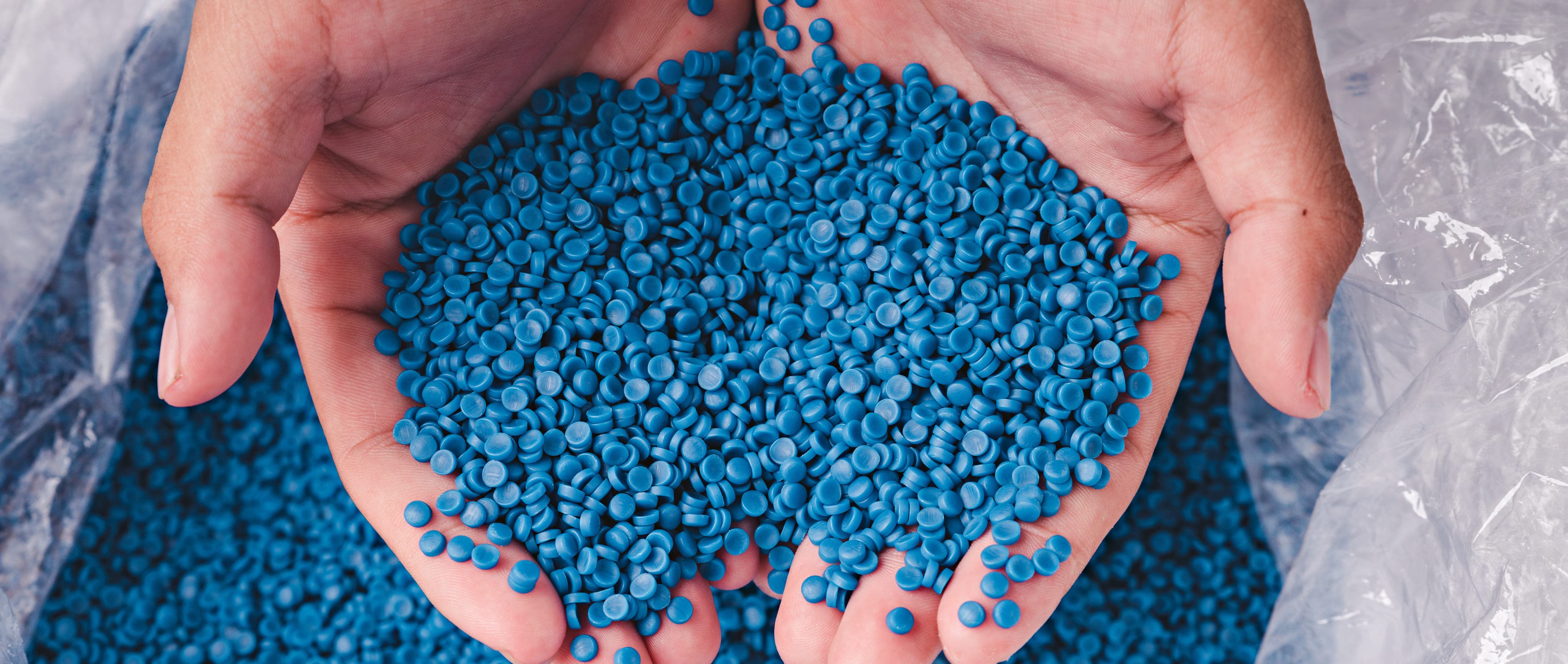
Biobased & Circular economy
—4 september 2025
September 4, 2025
3 minutes

The mechanical recycling sector in the Netherlands is under great pressure. Bankruptcies are piling up, while European legislation such as the Packaging and Packaging Waste Regulation (PPWR) calls for increased use of recycled plastic. Without intervention, crucial infrastructure for a circular economy will disappear, along with the Netherlands' leading position in Europe regarding circular plastics. New research by Copper8, SD&Co, Verpact, and Invest-NL shows that structural cost reductions are necessary to make the recycling sector viable and future-proof.
For the first time in the Netherlands, a system dynamics model has been used to calculate the impact of various policy measures on the profitability of mechanical recyclers, CO₂ emissions, and the use of recyclate. The study focuses on the flow of household plastic packaging waste (also known as ‘LDPE’) collected via the UPV system and mechanically recycled. It shows that without structural cost reductions, Dutch recyclers cannot compete. Examples of effective interventions include a subsidy on the unprofitable top or fiscal incentives that give recyclers a level playing field compared to virgin plastic.
In total, ten policy measures have been assessed, including a CO₂ tax, price measures, technological innovation, and import restrictions. However, without structural cost reductions, these measures are insufficiently effective.
In 2024, seven Dutch recyclers went bankrupt. In 2025, several production lines were closed. Dutch recyclers face high energy prices, stricter environmental regulations, relatively polluted waste streams, and relatively high labor costs. At the same time, imports of cheap recycled plastic from countries like China and the USA are increasing. As a result, Dutch companies can hardly compete, while investments in quality and circularity are urgently needed.
Although cost reduction is crucial, other conditions are also important to make the recycling market healthy: increased demand for recycled plastic, better quality of waste streams, and technological innovation to increase yields. A cohesive package of measures is required, with cost reduction as a fundamental element.
Maintaining a strong Dutch recycling sector is a political choice. Without government intervention, the sector will shrink, and jobs, knowledge, and circular infrastructure will be lost. This also endangers the feasibility of European legislation and climate targets. Structural funding yields immediate benefits: less CO2 emissions, a fairer playing field, and the ability to build a robust circular economy in the Netherlands.
The report “A circular economy for plastic recycling” was carried out by Copper8 and SD&Co, with input from Verpact, Invest-NL, and other supply chain stakeholders. It will be published ahead of the parliamentary debate on the circular economy and plastic recycling in the House of Representatives on 11 September 2025.
Xandra Weinbeck
sr. business development manager
